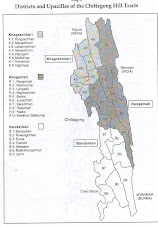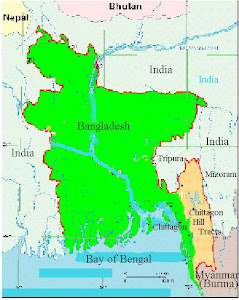UN REVIEW OF BANGLADESH HUMAN RIGHTS RECORD AT UPR:
NGOS welcome pledge on war criminals trials, regret missed opportunity on CHT Accord and women’s rights, and rejection of Refugee Convention
On Tuesday 3 February, Bangladesh underwent its first Universal Periodic Review before the UN Human Rights Council. During the 3 hour interactive dialogue, the Foreign Minister, Dipu Moni, presented a statement and responded to questions and heard recommendations from states.
A coalition of 17 human rights and development organisations (the UPR Forum) –including ASK, Steps, Nagorik Uddyog and Naripokkho 1-- welcomed declarations by the Bangladesh Government to ‘hold war crimes trials in consonance with international standards’, to ‘end the culture of impunity’ and to declare ‘zero tolerance for torture and extra-judicial killings’ and bring to account those found responsible for such acts, and ‘recognizing the high-handedness of certain agencies’. They also welcomed the holistic approach to considering both civil and political and economic and social and cultural rights.
Forum Members however regretted that – with the exception of these declarations – the Minister’s statement amounted largely to a rhetorical statements of principles, and failed to provide any clear time bound or actionable commitments on specific measures to be adopted to transform such statements into reality. In particular, they noted with dismay the lack of any reference to the CHT Accord or to specific measures for ensuring women’s rights or minority rights or indeed for advancing the rights to shelter, or for investigating allegations of human rights violations, in particular torture.
Forum Members condemned the Minister’s denial of the state’s obligations towards refugees and her reference to the Refugee Convention as being ‘outdated’ and to Bangladesh being ‘forced’ to accept refugees, indicating a lack of respect for international law, and one which is deeply unfortunate in terms of Bangladesh’s own birth having been marked by one of the largest refugee outflows in history.
Statement by Forum
We believe that this elected Government as the representative of the people, and given its overwhelming mandate, had a real opportunity at the UPR to clearly articulate before the international community commitments it has already made nationally to the people of Bangladesh. It is unfortunate that this opportunity was missed.
We had hoped that the Government’s statement at the UN would clearly reflect not only its own manifesto commitments but also build upon its own earlier demands while in opposition over the past seven years for implementation of human rights. Expectations were high that the Government would at the very least reiterate these commitments in the very special context in which the first UPR of Bangladesh was taking place.
The Minister’s overly generic presentation at this juncture is disappointing for those who had been anticipating a clear commitment to implementing human rights. It indicates that although the Government claims to be a government of change, it is still not making any concrete and timebound plans for change in the area of human rights.
This Government is expected to be reviewed on its commitments in four years time. But given the generic form of the statements made, it is unclear on what basis they will be reviewed or how progress will be measured.
We therefore urge the Government of Bangladesh:
To accept the recommendations made by states in the interactive dialogue and to make clear and time bound declarations of commitment that it will also reflect in the upcoming June session of the HRC. We draw particular attention to recommendations relating to
reform of discriminatory laws and strengthening actions and taking a comprehensive approach to addressing violence against women
investigating extra judicial executions and torture by security forces and others
protection of minority rights, including through implementation of the CHT Accord
ensuring independence of the judiciary, strengthening the National Human Rights Commission in accordance with the Paris Principles, and the ACC
adopting a Child Labour Policy and Plan of Action on Child Sexual abuse
taking measures to reduce the effect of climate change and
withdrawing reservations on the core human rights treaties, as well as ratifying the Migrant Workers’ Convention, ILO 169 on Indigenous Peoples , the Convention on Enforced Disappearances and the Optional Protocol to the Convention against Torture and the Refugee Convention.
Issuing standing invitations to Special Rapporteurs to visit Bangladesh, in particular the Special Rapporteur on Summary Executions
To ensure that the UPR commitments are raised for consideration before the Parliament.
To establish standing mechanisms nationally to enable ongoing review and monitoring of Bangladesh’s UPR commitments and national obligations to protect human rights, through setting up a Parliamentary Standing Committee on Human Rights, and also through interactive dialogue with human rights organisations.
In Geneva:
Sayeed Ahmad at sayeed_bangla@yahoo.com
Zakir Hossain at zhossain@agni.com
In Dhaka:
Iftekharuzzaman, Transparency International Bangladesh at edtib@ti-bangladesh.org
Qumrunnesa Nazly Ain o Salish Kendra (ASK) at nazlyq05@yahoo.com 8315851, 933 7173
Mamunur Rashid, Steps, at info@stepsbd.org
skip to main |
skip to sidebar


Map of Bangladesh

CHTs is number one Milliary zone in the world


Ministry of Chittagong Hill Tracts Affairs
The United Nation
The IJPMNA
This page provides information of the minority Indigenous Jumma Peoples in Chittagong Hill Tracts (CHTs) Bangladesh.
Contact with this please write:-ijpnusa@yahoo.com
Contact with this please write:-ijpnusa@yahoo.com
About Us
Location of Jummaland

Jumma Videos
- The BANDARBAN SADAR
- The Rowangchari
- The Ruma
- The Lama
- The Thanchi
- The Alikadom
- The Naikhkhongchari
- The RANGAMATI SADAR
- The Baghaichari
- The Langudu
- The Nanyachar
- The Barkal
- The Jurachari
- The Bilaichari
- The Kaptai
- The Rajsthali
- The Kawkhali
- The KHAGRACHARI SADAR
- The Manikchari
- The Laksmichari
- The Mahalchari
- The Matiranga
- The Ramgarh
- The Dighinala
- The Panchari
Audio & Video
Jumma Natok (Drama)
International Support
Educational Institution
Religious Organization
Buddhist Studies

Map of Bangladesh
Mission of Bangladesh
About Bangladesh
Bangali Audio Songs
Bengali News

CHTs is number one Milliary zone in the world
Online Audios
Refugee in Homeland

Jumma Picture

Blog Archive
About Me
- The Indigenous Jumma Peoples Movement in North America
- The Chittagong Hill Tracts (CHT) region comprises three districts: Banderban , Khagrachari and Rangamati. The districts comprise seven main valleys formed by the Feni, Karnafuli, Chengi, Myani, Kassalong, Sangu and Matamuhuri rivers aid their tributaries and numerous hills, ravines and cliffs covered with dense vegetation, which are in complete contrast to most other districts of Bangladesh, which consist mainly of alluvial lands. Geographically the CHT can be divided into two broad ecological zones: (a) hill valley, (b) agricultural plains. It is surrounded by the Indian states of Tripura on the north and Mizoram on the east, Myanmar on the south and east and Chittagong district on the west.
